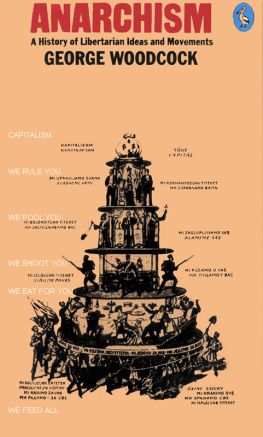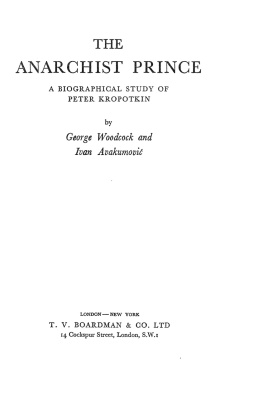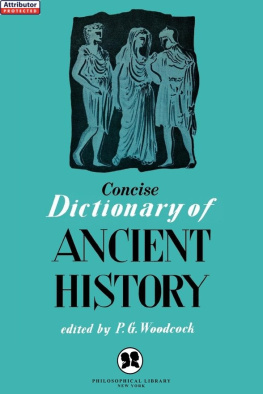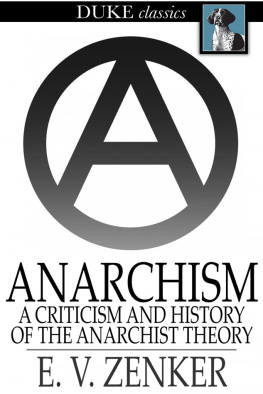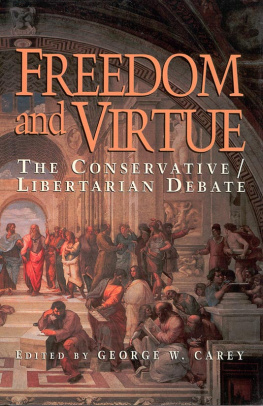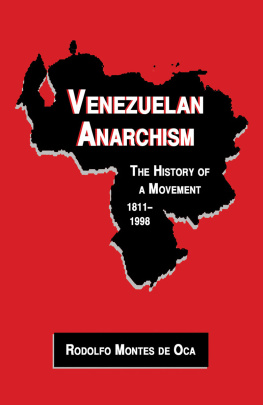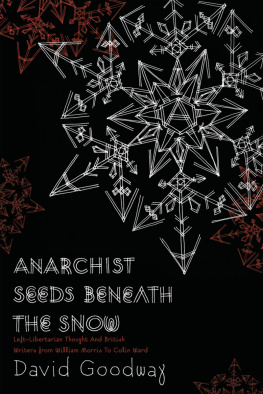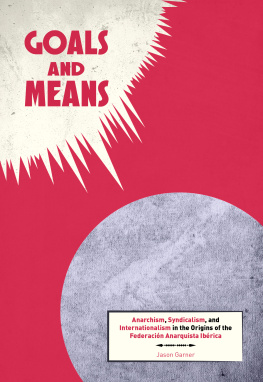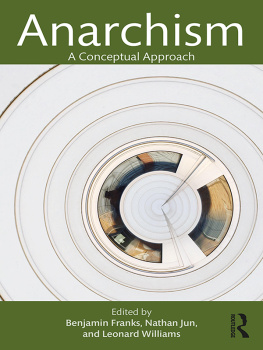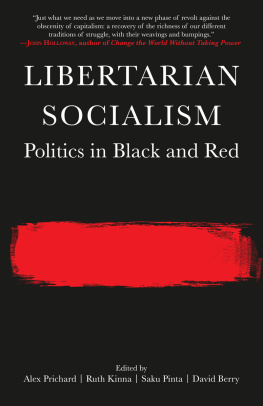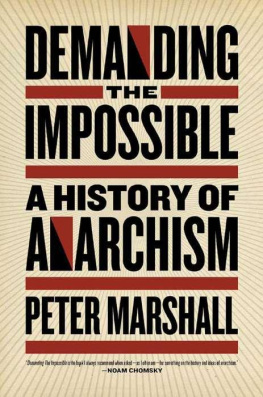George Woodcock - Anarchism: A History of Libertarian Ideas and Movements
Here you can read online George Woodcock - Anarchism: A History of Libertarian Ideas and Movements full text of the book (entire story) in english for free. Download pdf and epub, get meaning, cover and reviews about this ebook. year: 1975, genre: Politics. Description of the work, (preface) as well as reviews are available. Best literature library LitArk.com created for fans of good reading and offers a wide selection of genres:
Romance novel
Science fiction
Adventure
Detective
Science
History
Home and family
Prose
Art
Politics
Computer
Non-fiction
Religion
Business
Children
Humor
Choose a favorite category and find really read worthwhile books. Enjoy immersion in the world of imagination, feel the emotions of the characters or learn something new for yourself, make an fascinating discovery.
- Book:Anarchism: A History of Libertarian Ideas and Movements
- Author:
- Genre:
- Year:1975
- Rating:5 / 5
- Favourites:Add to favourites
- Your mark:
- 100
- 1
- 2
- 3
- 4
- 5
Anarchism: A History of Libertarian Ideas and Movements: summary, description and annotation
We offer to read an annotation, description, summary or preface (depends on what the author of the book "Anarchism: A History of Libertarian Ideas and Movements" wrote himself). If you haven't found the necessary information about the book — write in the comments, we will try to find it.
Anarchism: A History of Libertarian Ideas and Movements — read online for free the complete book (whole text) full work
Below is the text of the book, divided by pages. System saving the place of the last page read, allows you to conveniently read the book "Anarchism: A History of Libertarian Ideas and Movements" online for free, without having to search again every time where you left off. Put a bookmark, and you can go to the page where you finished reading at any time.
Font size:
Interval:
Bookmark:
George Woodcock, , 1962, Postscript 1975.
'Whoever denies authority and fights against it is an anarchist,' said Sebastien Faure. The definition is tempting in its simplicity, but simplicity is the first thing to guard against in writing a history of anarchism. Few doctrines or movements have been so confusedly understood in the public mind, and few have presented in their own variety of approach and action so much excuse for confusion. That is why, before beginning to trace the actual historical course of anarchism, as a theory and a movement, I start with a chapter of definition. What is anarchism? And what is it not? These are the questions we must first consider.
Faure's statement at least marks out the area in which anarchism exists. All anarchists deny authority; many of them fight against it. But by no means all who deny authority and fight against it can reasonably be called anarchists. Historically, anarchism is a doctrine which poses a criticism of existing society; a view of a desirable future society; and a means of passing from one to the other. Mere unthinking revolt does not make an anarchist, nor does a philosophical or religious rejection of earthly power. Mystics and stoics seek not anarchy, but another kingdom. Anarchism, historically speaking, is concerned mainly with man in his relation to society. Its ultimate aim is always social change; its present attitude is always one of social condemnation, even though it may proceed from an individualist view of man's nature; its method is always that of social rebellion, violent or otherwise.
But even among those who recognize anarchism as a social-political doctrine, confusion still exists. Anarchism, nihilism, and terrorism are often mistakenly equated, and in most dictionaries will be found at least two definitions of the anarchist. One presents him as a man who believes that government must die before freedom can live. The other dismisses him as a mere promoter of disorder who offers nothing in place of the order he destroys. In popular thought the latter conception is far [8] more widely spread. The stereotype of the anarchist is that of the cold-blooded assassin who attacks with dagger or bomb the symbolic pillars of established society. Anarchy, in popular parlance, is malign chaos.
Yet malign chaos is clearly very far from the intent of men like Tolstoy and Godwin, Thoreau and Kropotkin, whose social theories have all been described as anarchist. There is an obvious discrepancy between the stereotype anarchist and the anarchist as we most often see him in reality; that division is due partly to semantic confusions and partly to historical misunderstandings.
In the derivation of the words 'anarchy', 'anarchism', and 'anarchist', as well as in the history of their use, we find justifications for both the conflicting sets of meanings given to them. Anarchos, the original Greek word, means merely 'without a ruler', and thus anarchy itself can clearly be used in a general context to mean either the negative condition of unruliness or the positive condition of being unruled because rule is unnecessary for the preservation of order.
It is when we come to the use of the three words in a social-political context that we encounter important shifts of meaning. 'Anarchy' and 'anarchist' were first used freely in the political sense during the French Revolution. Then they were terms of negative criticism, and sometimes of abuse, employed by various parties to damn their opponents, and usually those to the Left. The Girondin Brissot, for example, demanding the suppression of the Enrages, whom he called anarchists, declared in 1793, 'it is necessary to define this anarchy'. He went on to do so:
Laws that are not carried into effect, authorities without force and despised, crime unpunished, property attacked, the safety of the individual violated, the morality of the people corrupted, no constitution, no government, no justice, these are the features of anarchy.Brissot at least attempted a definition. A few years later, turning upon the Jacobins it had destroyed, the Director descended to partisan abuse, declaring:
By 'anarchists' the Directory means these men covered with crimes, stained with blood, and fattened by rapine, enemies of laws they [9] do not make and of all governments in which they do not govern, who preach liberty and practise despotism, speak of fraternity and slaughter their brothers ...; tyrants, slaves, servile adulators of the clever dominator who can subjugate them, capable in a word of all excesses, all basenesses, and all crimes.Used moderately by Brissot or violently by the Directory, 'anarchism' was clearly a word of condemnation both during and after the French Revolution; at best it described those whose policies one considered destructive and disastrous, at worst it was a term to be used indiscriminately for the smearing of one's rivals. And so the Enrages, who distrusted excessive power, and Robespierre, who loved it, were tarred by the same invidious brush.
But, like such titles as Christian and Quaker, 'anarchist' was in the end proudly adopted by one of those against whom it had been used in condemnation. In 1840, Pierre-Joseph Proudhon, that stormy, argumentative individualist who prided himself on being a man of paradox and a provoker of contradiction, published the work that established him as a pioneer libertarian thinker. It was What Is Property?, in which he gave his own question the celebrated answer: 'Property is theft.' In the same book he became the first man willingly to claim the title of anarchist.
Undoubtedly Proudhon did this partly in defiance, and partly in order to exploit the word's paradoxical qualities. He had recognized the ambiguity of the Greek anarchos, and had gone back to it for that very reason -- to emphasize that the criticism of authority on which he was about to embark need not necessarily imply an advocacy of disorder. The passages in which he introduces 'anarchist' and 'anarchy' are historically important enough to merit quotation, since they not merely show these words being used for the first time in a socially positive sense, but also contain in germ the justification by natural law which anarchists have in general applied to their arguments for a non-authoritarian society.
What is to be the form of government in the future? [he asks]. I hear some of my readers reply: 'Why, how can you ask such a question? You- are a republican.' A republican! Yes, but that word specifies nothing. Res publico; that is, the public thing. Now, whoever [10] is interested in public affairs -- no matter under what form of government, may call himself a republican. Even kings are republicans. 'Well, you are a democrat.' No ... "Then what are you?' I am an anarchist!Proudhon goes on to suggest that the real laws by which society functions have nothing to do with authority; they are not imposed from above, but stem from the nature of society itself. He sees the free emergence of such laws as the goal of social endeavour.
Just as the right of force and the right of artifice retreat before the steady advance of justice, and must finally be extinguished in equality, so the sovereignty of the will yields to the sovereignty of reason and must at last be lost in scientific socialism.... As man seeks justice in equality, so society seeks order in anarchy. Anarchy -- the absence of a master, of a sovereign -- such is the form of government to which we are every day approximating.The seeming paradox of order in anarchy -- here indeed we have the key to the change in connotation of this whole group of words. Proudhon, conceiving a natural law of balance operating within society, rejects authority as an enemy and not a friend of order, and so throws back at the authoritarians the accusations levelled at the anarchists; in the process he adopts the title he hopes to have cleared of obloquy.
Next pageFont size:
Interval:
Bookmark:
Similar books «Anarchism: A History of Libertarian Ideas and Movements»
Look at similar books to Anarchism: A History of Libertarian Ideas and Movements. We have selected literature similar in name and meaning in the hope of providing readers with more options to find new, interesting, not yet read works.
Discussion, reviews of the book Anarchism: A History of Libertarian Ideas and Movements and just readers' own opinions. Leave your comments, write what you think about the work, its meaning or the main characters. Specify what exactly you liked and what you didn't like, and why you think so.

